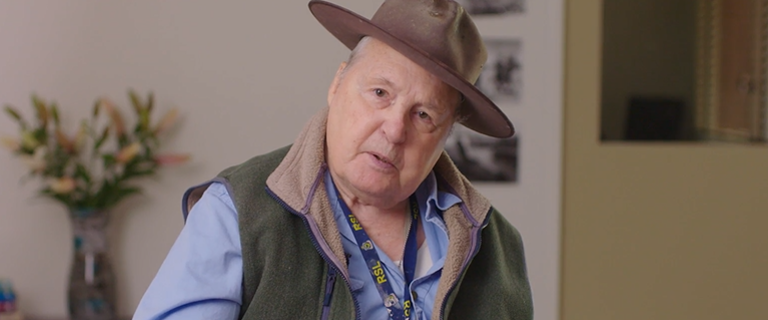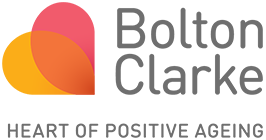Promoting mental wellbeing for veterans and families

It was when he returned home from his last tour of duty in Vietnam that Bolton Clarke Pinjarra Hills resident Keith says his wife noticed a change.
“When I came home from Vietnam the last trip I was standing at the door and my wife was working in the kitchen, and I was having a yarn to her,” he says.
“She said ‘You know, you’ve changed this time, what’s wrong?”
“I said ‘I’m ok’, because that was at the time when PTSD wasn’t talked about, you were less than a man if you admitted to it.”
October 26 marks the start of Veterans Health Week and mental wellness is a focus in 2019.
Supporting mental wellbeing for veterans and their families is the focus of the Veteran Family Mental Wellbeing Series, a free resource created by Bolton Clarke Group including Altura Learning that gives voice to the experience of veterans and their families, as well as researchers and clinical professionals.
The related Altura Learning Caring for Veterans with PTSD and Dementia module is designed for use by aged care workers supporting ageing veterans.
Bolton Clarke Manager Clinical Safety and Quality Judy Fisher said about 10-20 per cent of veterans would develop PTSD, whether or not they were deployed overseas. Research shows people affected by PTSD have increased risk of developing dementia, and this means they have specialised support needs in aged care.
“For residents with PTSD and dementia, person-centred care is the most important thing,” Judy said.
“You cannot look after a resident unless you focus on them as a person – you need to understand their history, family dynamics, what their hobbies were and what they like to do now. You need to have a holistic picture of that person.
“The most common triggers for people with PTSD in an aged care setting are loud noises, uniformed staff, a change in care workers, being argued with and being told what to do rather than encouraged or invited to do something.”
Judy said working with families and bringing teams together was important.
“We all have different interactions, so bringing all the information together is like putting together a jigsaw puzzle that gives us a clearer picture of each resident and their needs,” she said.
The Veteran Family Mental Wellbeing Series is a free resource supporting mental wellbeing for veterans of all ages and their families.
Altura Learning’s Caring for Veterans with PTSD and Dementia module is available from http://www.alturalearning.com.

